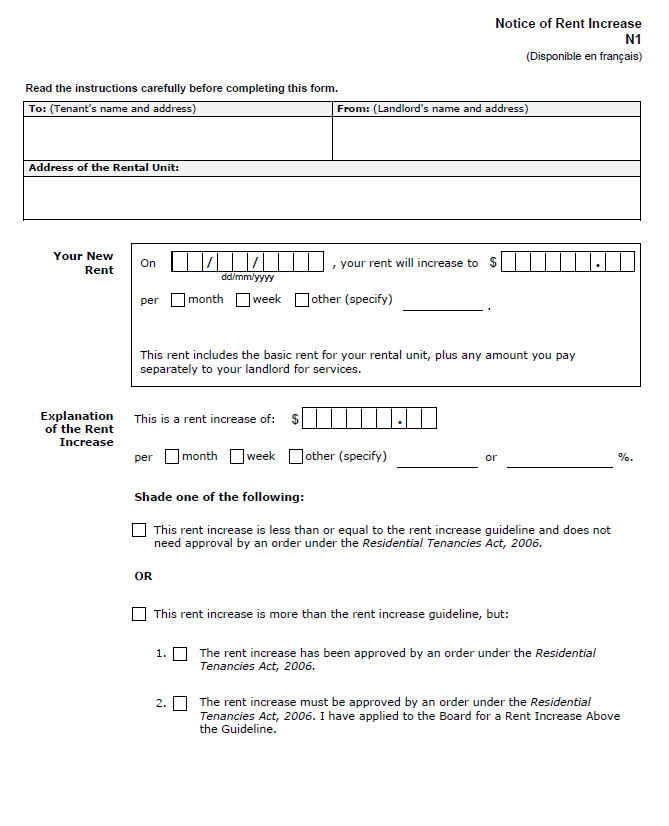Guidelines and Exceptions Explained
Rent increase is a crucial aspect of landlord-tenant relationships, and it’s important for both parties to understand their rights and responsibilities. In Ontario, the Residential Tenancies Act (RTA) governs the rules and regulations related to rent increases. Generally, there are guidelines in place to protect tenants from excessive rent hikes. However, there are certain exceptions under the RTA that allow landlords to increase rents beyond the prescribed guideline. In this article, we will explore the rent increase guidelines in Ontario and delve into the exceptions that may permit a landlord to exceed the prescribed limit.
The RTA provides a framework for rent increase in Ontario that aims to strike a balance between the rights of landlords and tenants. Under the current guidelines, which may be subject to change, landlords can typically increase the rent once every 12 months. The increase percentage is determined by the annual Rent Increase Guideline (RIG), set by the government and based on the Ontario Consumer Price Index.
While the general rule is that landlords must adhere to the prescribed guideline, there are several exceptions under the RTA that allow for higher rent increases. It’s important for both landlords and tenants to understand these exceptions and their specific circumstances.
The RTA permits landlords to apply for Above-Guideline Rent Increases in certain situations, such as when they have incurred extraordinary operating expenses or capital expenditures. Above-Guideline Rent Increases must be approved by the Landlord and Tenant Board (LTB) after careful consideration of supporting evidence provided by the landlord.
Landlords of newly constructed or substantially renovated units, which are exempt from rent control for a certain period, may increase rents without adhering to the annual Rent Increase Guideline. Once the exemption period expires, the rent control provisions will apply.

According to the Ontario Residential Tenancies Act, new buildings, additions to existing buildings and most new basement apartments that are occupied for the first time for residential purposes after November 15, 2018 are exempt from rent control.
Additionally, units that have undergone substantial renovations may also be exempt from rent control for a specified period. The exemption is based on the year in which the substantial renovations were completed. The RTA provides guidelines and criteria for determining the extent of renovations required to qualify for this exemption.
In some cases, landlords and tenants may enter into agreements that allow for rent increases above the prescribed guidelines. These agreements should be voluntary, mutually beneficial, and made in good faith. It is advisable for both parties to seek legal advice and ensure the terms are fair and reasonable.
In the event of a dispute between the landlord and tenant, having a standardized lease in place can help resolve issues more efficiently. The lease serves as a clear reference point for resolving disagreements and provides a foundation for mediation or legal proceedings, if necessary.
If there are significant increases in utilities or maintenance costs beyond the landlord’s control, they may be justified in increasing the rent accordingly. However, it is crucial to demonstrate the substantial impact of these expenses and provide supporting documentation to justify the rent increase.

When landlords make significant capital improvements or upgrades to the rental property that directly benefit the tenants, they may seek rent increases above the guideline. These improvements should enhance the quality of living or provide additional amenities to the tenants, justifying the higher rent.
In some cases, landlords may offer temporary rent discounts or concessions to tenants for various reasons, such as during renovations or to attract new tenants. Once the agreed-upon period expires, landlords may increase the rent to the standard rate or adjust it accordingly.
The rent increase regulations in Ontario aim to strike a balance between the rights and responsibilities of landlords and tenants.
It is crucial for both parties to be aware of their rights and obligations, seek legal advice when necessary, and maintain open communication to ensure a fair and transparent rental relationship.
to save your favourite homes and more
Enter your email address and we will send you a link to change your password.